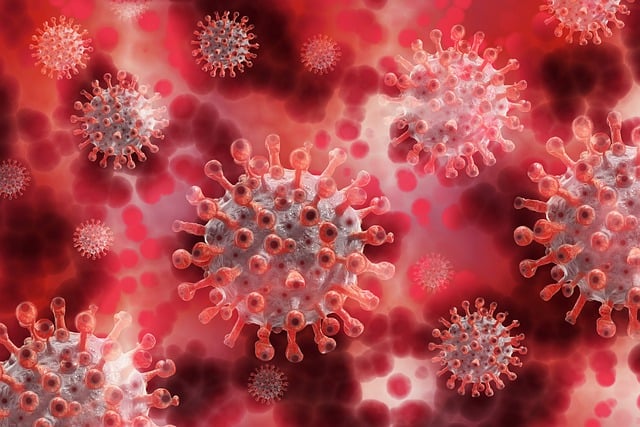Scientists find key reason why loss of smell occurs in long-term COVID-19 cases. The inflammatory mechanism could also help explain other long-term symptoms of COVID-19
Persistent loss of smell post-COVID-19 is associated with immune cell infiltration and altered gene expression in the olfactory epithelium Summary SARS-CoV-2 causes profound changes in the sense of smell , including complete loss of smell. Although these alterations are usually temporary, many patients with COVID-19 present olfactory dysfunction that lasts from months to years. Although autopsy studies in animals and humans have suggested mechanisms driving acute anosmia, it remains unclear how SARS-CoV-2 causes persistent loss of smell in a subset of patients. To address this question, we analyzed olfactory epithelial samples collected from 24 biopsies , including those from nine patients with objectively quantified long-term loss of smell after COVID-19. This biopsy-based approach revealed a diffuse infiltrate of interferon-γ-expressing T cells and a change in the composition of the myeloid cell population, including enrichment of CD207+ dendritic cells and depletion of anti-inflammatory M2 macrophages. Despite the absence of detectable SARS-CoV-2 RNA or protein, gene expression in supporting cells of the olfactory epithelium barrier, termed sustainacular cells , appeared to reflect a response to ongoing inflammatory signaling, which was accompanied of a reduction in the number of olfactory sensory neurons in relation to olfactory epithelial Sustainacular cells. These findings indicate that T cell-mediated inflammation persists in the olfactory epithelium long after SARS-CoV-2 has been cleared from the tissue, suggesting a mechanism for long-term loss of smell post-COVID-19. . |
Comments
The reason some people fail to regain their sense of smell after COVID-19 is related to an ongoing immune attack on olfactory nerve cells and an associated decrease in the number of those cells, a team of scientists reported. by Duke Health.
The finding, which was published in the journal Science Translational Medicine , provides important insight into a vexing problem that has affected millions of people who have not fully recovered their sense of smell after COVID-19.
While focusing on the loss of smell, the finding also sheds light on possible underlying causes of other long-term COVID-19 symptoms, including generalized fatigue, shortness of breath and mental confusion, which could be triggered by similar biological mechanisms.
"One of the first symptoms that has generally been associated with COVID-19 infection is loss of smell," said senior author Bradley Goldstein, M.D., Ph.D., associate professor in the Department of Head and Neck Surgery. and Communication Sciences at Duke and the Department of Neurobiology.
“Fortunately, many people who have an impaired sense of smell during the acute phase of viral infection will regain their sense of smell in the next one to two weeks, but some will not,” Goldstein said. “We need to better understand why this subset of people will have persistent loss of smell for months or years after becoming infected with SARS-CoV2.”
In the study, Goldstein and colleagues from Duke, Harvard, and the University of California-San Diego analyzed olfactory epithelial samples collected from 24 biopsies, including nine patients suffering from long-term loss of smell after COVID-19. This biopsy -based approach , using sophisticated single-cell analysis in collaboration with Sandeep Datta, M.D., Ph.D., of Harvard University, revealed widespread infiltration of T cells involved in an inflammatory response into the olfactory epithelium, the tissue in the nose where the nerve cells for smell are located. This unique inflammation process persisted despite the absence of detectable levels of SARS-CoV-2. Additionally, the number of olfactory sensory neurons decreased, possibly due to tissue damage from ongoing inflammation.
“The findings are surprising,” Goldstein said. “It’s almost like a kind of autoimmune process in the nose .”
Goldstein said learning what sites are damaged and what types of cells are involved is a key step in beginning to design treatments. He said the researchers were encouraged because the neurons seemed to maintain some repair capacity even after long-term immune attack.
“We are hopeful that modulating the abnormal immune response or repair processes within the noses of these patients could help restore, at least partially, the sense of smell,” Goldstein said, noting that this work is currently underway. ongoing in his laboratory.
He said the findings from this study could also inform additional research into other long-term COVID-19 symptoms that might be experiencing similar inflammatory processes.
In addition to Goldstein and Datta, study authors include John B. Finlay, David H. Brann, Ralph Abi-Hachem, David W. Jang, Allison D. Oliva, Tiffany Ko, Rupali Gupta, Sebastian A. Wellford, E. Ashley Moseman, Sophie S. Jang, Carol H. Yan, Hiroaki Matusnami, and Tatsuya Tsukahara. The study received financial support from the National Institutes of Health (DC018371, DC016859, AG074324, DC019956) and the Duke Department of Head and Neck Surgery and Communication Sciences.
















